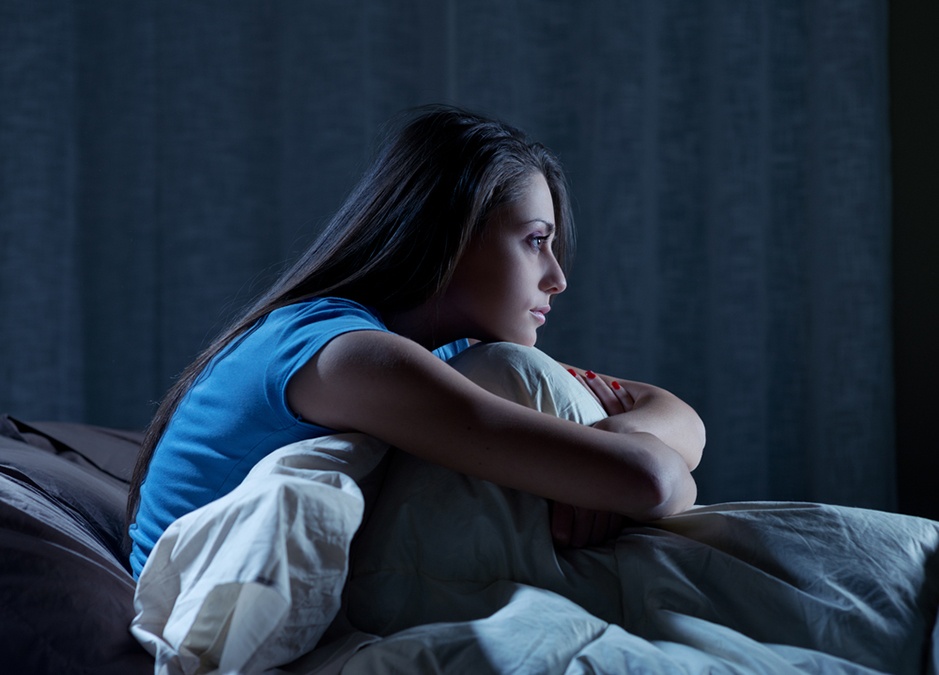 You wake up in the night from a nightmare and can’t fall asleep again.
You wake up in the night from a nightmare and can’t fall asleep again.
So, after some twisting and turning, you go to the fridge and grab a snack. You still can’t sleep.
In the morning you feel wasted, anxious and even depressed. And it is no wonder what.
But what if this was all the reverse? What if it wasn’t really the nightmares that woke you up or insomnia that prevented you from falling asleep?
In a new study, Korean researchers decided to investigate whether people with anxiety or depression are more likely to have nightmares than the general population.
After all, if we can identify the cause of the nightmares, we can stop the nightmares, the night eating, and the insomnia.
They recruited 171 female undergraduate students with an average age of 21.7.
They gave them a barrage of questionnaires to complete, including the Disturbing Dream and Nightmare Severity Index, the Night Eating Questionnaire, the Hospital Anxiety and Depression Scale, and the Insomnia Severity Index.
Once they had all this information available, they were able to crunch the numbers.
As expected, they found that participants with the most severe nightmares were the most likely to suffer from night eating syndrome, insomnia, anxiety, and depression.
They didn’t unearth the direction of these relationships, as they were probably bidirectional in most cases.
For example, anxiety brings about nightmares, but nightmares can also create subsequent anxiety that, according to one of the studies reviewed, can last for three days.
Similarly, nightmares can cause insomnia, as you are too disturbed to go back to sleep. However, insomnia can also produce the feeling that you’re having a lot of nightmares, because if you wake up after every dream, you are more likely to remember them, including the scary ones.
When they took insomnia out of the picture, they discovered that the girls who experienced the highest levels of anxiety were the most likely to have nightmares and have night eating syndrome. Depression was not relevant when insomnia was excluded.
This means that we can open the door to addressing these three conditions by removing anxiety: insomnia, nightmares, and night eating.

 Overcoming IBD
Overcoming IBD Multiple Sclerosis
Multiple Sclerosis Banishing Bronchitis
Banishing Bronchitis Gum Disease Gone
Gum Disease Gone Overcoming Onychomycosis
Overcoming Onychomycosis Neuropathy No More
Neuropathy No More The Prostate Protocol
The Prostate Protocol Brain Booster
Brain Booster
 Ironbound
Ironbound
 Solution for Shingles
Solution for Shingles
 The Bone Density Solution
The Bone Density Solution
 The Ultimate Healing Protocol
The Ultimate Healing Protocol
 The Parkinson's Protocol
The Parkinson's Protocol
 The Chronic Kidney Disease Solution
The Chronic Kidney Disease Solution
 Overthrowing Anxiety
Overthrowing Anxiety The Fatty Liver Solution
The Fatty Liver Solution The Hypothyroidism Solution
The Hypothyroidism Solution
 The End of Gout
The End of Gout The Blood Pressure Program
The Blood Pressure Program
 The Oxigized Cholesterol Strategy
The Oxigized Cholesterol Strategy
 Stop Snoring And Sleep Apnea Program
Stop Snoring And Sleep Apnea Program
 The Arthritis Strategy
The Arthritis Strategy The Vertigo & Dizziness Program
The Vertigo & Dizziness Program The 3-Step Diabetes Strategy
The 3-Step Diabetes Strategy Hemorrhoids Healing Protocol
Hemorrhoids Healing Protocol The Erectile Dysfunction Master
The Erectile Dysfunction Master Weight Loss Breeze
Weight Loss Breeze The IBS Program
The IBS Program The Insomnia Program
The Insomnia Program The Migraine and Headache Program
The Migraine and Headache Program The Neck Pain Solution
The Neck Pain Solution The Menopause Solution
The Menopause Solution The Ejaculation Master
The Ejaculation Master The TMJ Solution
The TMJ Solution The Acid Reflux Solution
The Acid Reflux Solution The Fibromyalgia Solution
The Fibromyalgia Solution The Psoriasis Strategy
The Psoriasis Strategy